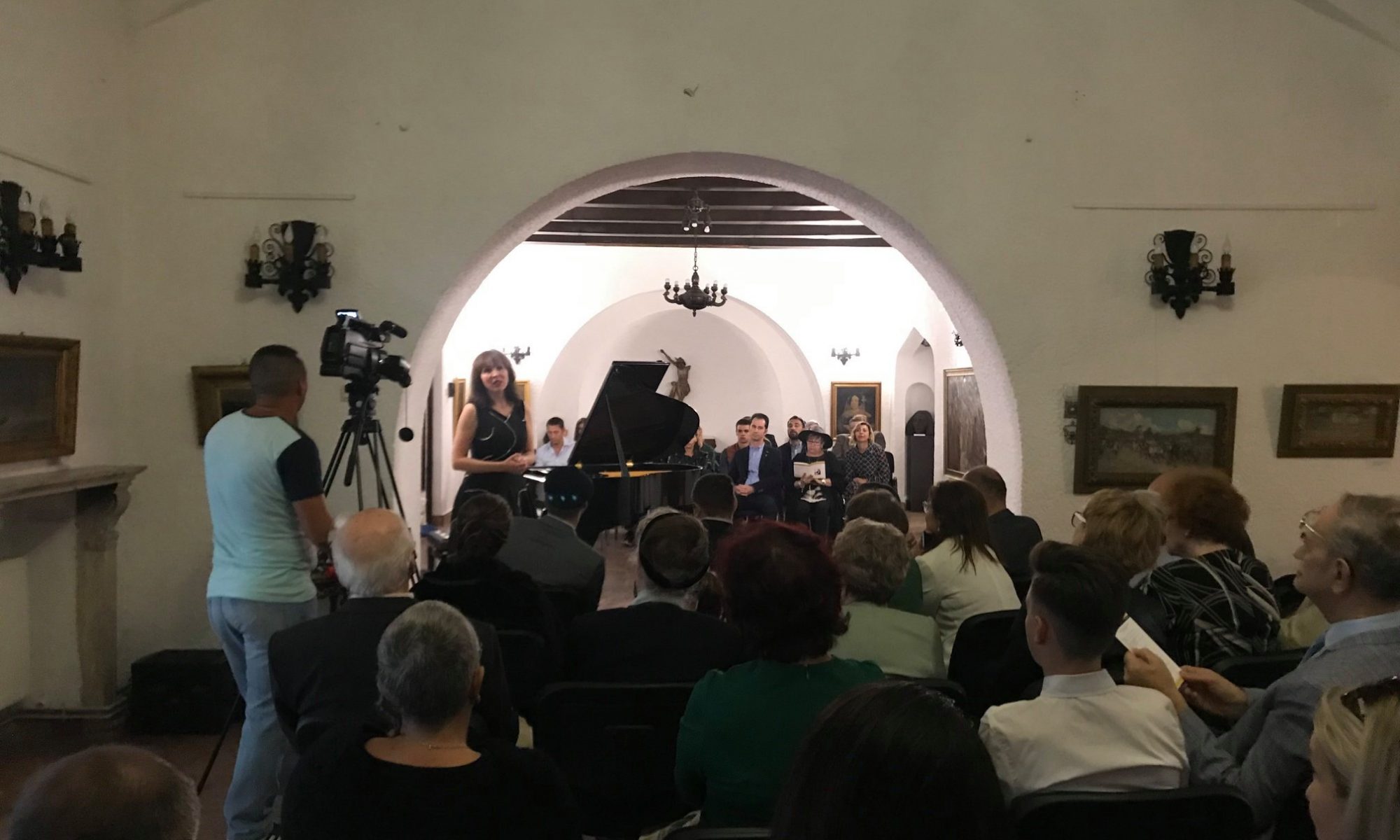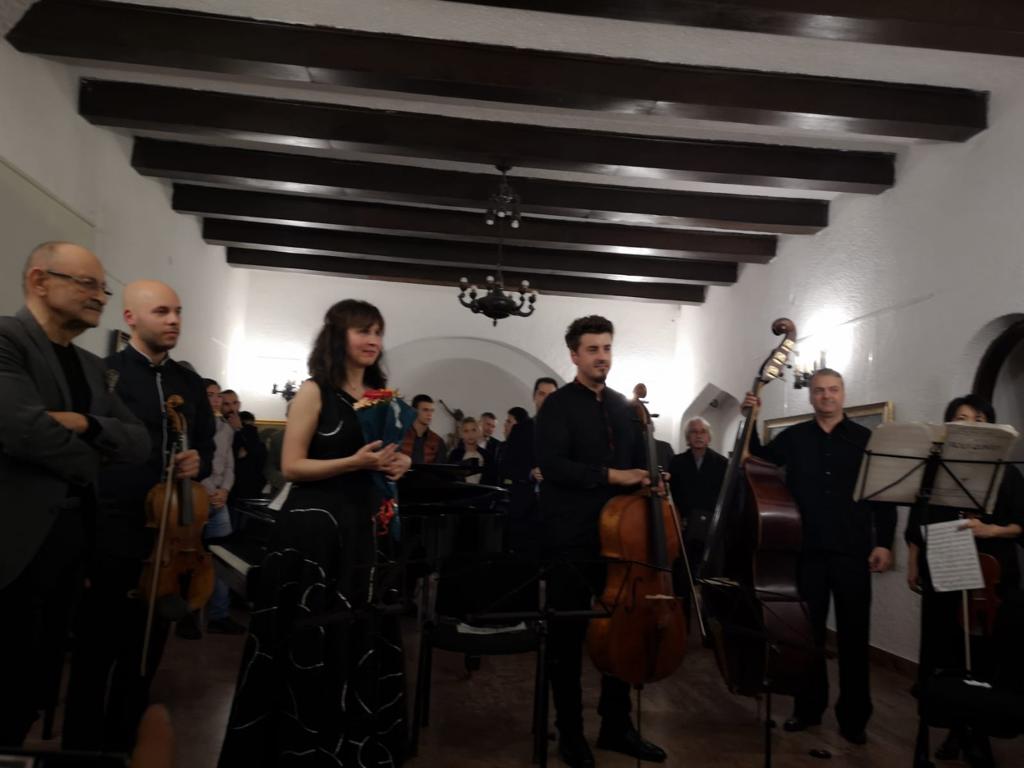
Constantin Silvestri – Complete Piano Works (World premiere)
Double CD
Suite Nr. 1 „Children Playing“ op. 3 nr. 1
Suite Nr. 2 „Children Playing“ op. 3 nr. 2
Suite Nr. 3 op. 6 nr. 1
Sonatina D-dur op. 3 Nr. 3
Sonata breve a due voci (1938) op. 13 Nr. 2
Sonata quasi una fantasia op. 19 nr. 2 (1940) First recording
Pièces de concert op. 25
Chants nostalgiques / Études de nuances / Cantece de pustiu op. 25 (1944)
Sonata IV Rapsodia in 3 episodi
Dances populaires roumaines de Transylvanie (Collection Béla Bartók) Kollektion), Arr. Piano Solo by Luiza Borac (First recording)
George Enescu – Piano Concerto D minor (First recording)
Györgyi Kurtàg – 2 piano works (First recording)
Charity Concert

A charity concert “Homage to Constantin Silvestri” was organised by the Rotary Club Ramnic at the initiative of Valentin Cismaru and pianist Luiza Borac, in aid of the Art College Victor Giuleanu. The event was a remarcable one, not only from the part of the exceptional soloists but because of a wonderful and generous audience who supported the project with greatest dedication.

REVIEWS
“Overall then, another fascinatingly varied set from this wonderfully musical and brilliant pianist. Heartily recommended.” (Musical Opinion)
“Tolle Musik – großartig gespielt! Borac ist eine ganz kluge Musikerin mit tollen Programm-Ideen. Ihr neues Doppel-Album mit Stücken ihres Landsmanns Constantin Silvestri dürfte auch für Klavierfreaks Neuland sein. Hier kann man fast unbekannte Klaviermusik von hoher Qualität entdecken. Luiza Borac spielt Silvestris Stücke mit bezwingender Intensität und Virtuosität. Man spürt, dass ihr diese Musik einfach im Blut liegt, und dass es hier gemeinsame Wurzeln gibt. Silvestris ganz spezieller Sound zwischen Folklorismus, Impressionismus und Neoklassizismus entwickelt unter Luiza Boracs Händen eine ganz besondere Magie.” (Radio Bremen)
“Its character is very much improvisatory and the technical demands are extraordinary. This presents no problem to Borac, who meets all the challenges head-on with great gusto and aplomb. The opening movement is dramatically intense, with the finale a whirlwind of scintillating fireworks.
To maintain the Romanian connection we end with music by two further composers. György Kurtág is represented by two short pieces. Both are receiving their first recordings. Finally, Borac performs the unfinished Piano Concerto in D minor, composed by George Enescu in 1897. This one movement fragment is Brahmsian in style and oozes lush romanticism. The performance is a live one with audience applause retained. Rossen Gergov provides the pianist with admirable and sympathetic support.
Luiza Borac has done much to champion her native Romanian composers, and I note that she’s scored success with a CD of Dinu Lipatti’s piano works, in addition to two volumes by George Enescu. This latest release, approached with her usual scholarly diligence, and beautifully recorded, reveals a valuable repository of intriguing scores otherwise lost and forgotten. The entire project has been a true labour of love.” (Musicweb)